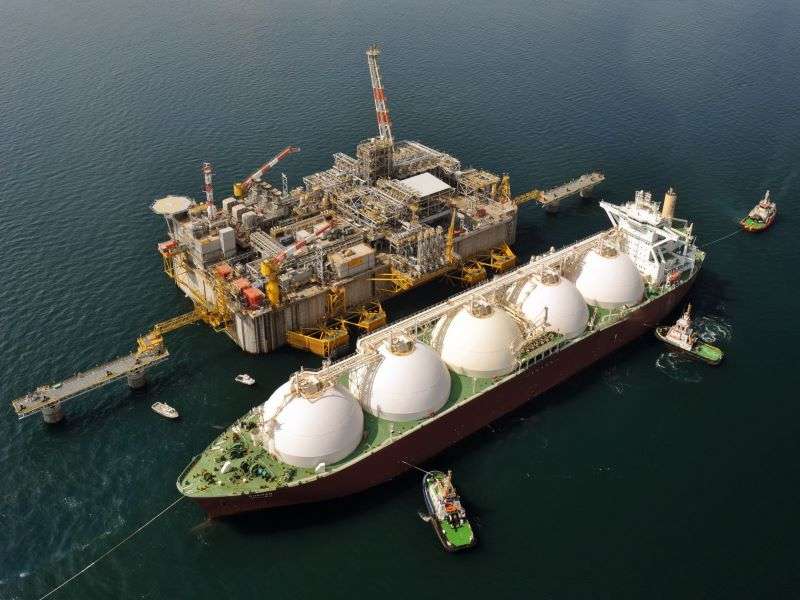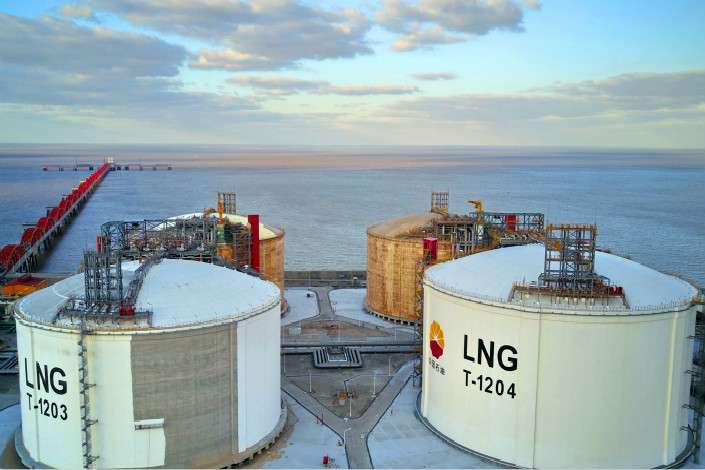The strain on LNG supply across the globe due to the Russia-Ukraine crisis and its attendant effect on energy prices raise the risk levels of the Tema LNG operations, and is likely to affect the new start-up date of the Tema LNG facility.
Having already missed several start-up dates in recent years, the Tema LNG risks facing further delays as the Russia-Ukraine crisis escalates, threatening to disrupt the supply of LNG. Meanwhile, the new date set for the start of commercial operations at the plant is Q2 2022, according to a report by Bloomberg.
Based on the agreement with GNPC, Shell will supply LNG to the Tema LNG facility. Shell and the Tema LNG Terminal Company (TLTC) have entered a 17-year terminal use agreement, where Shell will process up to 1.6mtpa of LNG through TLTC and then sell the processed natural gas supply to the GNPC under a gas sales agreement. The terminal will have the capacity to import around 2.0mtpa, which means that an additional 0.4mtpa of supplies will be open to negotiation or left free for spot deliveries.
Fitch Solutions, an affiliate of the Fitch Group cast doubts over the new date for the operationalization of the facility, stating that: “Risks of further delay are notable, given the amount of false hope given to the project’s start-up date in recent years,” and added that even the last date set— end-Q1 2021, was “a timeline we were skeptical of, given Ghana’s previous history of undermined LNG projects and operational hurdles.”

EU’s Scramble for LNG
The situation is difficult even the more, considering the fact that the global LNG market is currently facing strong headwinds as a global fight for the supply of gas is underway. Threats of Russia cutting supply of gas to Europe sends far-reaching consequences— widening gas supply shortfalls and skyrocketing gas prices— leaving Europe to scramble for alternatives.
Russia is the primary supply of gas to Europe. Pipeline imports originating in Russia grew from about 11 billion cubic feet per day (Bcf/d) in 2010 to more than 13 Bcf/d in 2020 (a low consumption year due to COVID-19 related impacts).
According to the U.S. Energy Information Administration (EIA), imports of natural gas by both pipeline and as liquefied natural gas (LNG) contributed more than 80 per cent of the supply of natural gas to the countries of the European Union (EU-27) and the United Kingdom (UK) in 2020, up from 65 per cent a decade earlier.
More to the point, the supply from Shell’s global LNG portfolio is being disrupted, following the company’s exit from its portfolio of assets in Russia on March 8, 2022, notably, the Sakhalin 2 LNG plant which it holds 2.75 per cent stake.

Shell in a press release on March 8, 2022, stated: “We will start our phased withdrawal from Russian petroleum products, pipeline gas and LNG. This is a complex challenge. Changing this part of the energy system will require concerted action by governments, energy suppliers and customers, and a transition to other energy supplies will take much longer.”
Global Conditions to Affect Tema LNG Terminal Operations
Considering these looming challenges, should Shell be able to supply LNG to the Tema LNG facility by June 2022 as anticipated, the volume of initial gas of around 1.6mtpa, intended to be supplied and processed may be reduced.
These turn of events have further escalated energy prices which has implications on the business case made for the use of LNG in Ghana’s energy mix— the fact that the price of LNG, which is expected to be significantly cheaper than existing gas supply alternatives for electricity production— may be difficult to achieve in the near term.
This is due to the fact that higher prices of LNG may slow down the adoption for industrial use, as the first market targeted for the sale of the LNG after commissioning is the power and industry encalve in Tema.
Even, at current electricity charges, industries in the country have decried cost of electricity as a threat to business growth, and the Association of Ghana Industries (AGI) has been vocal about this in the past year.
The ongoing global dynamics has implications for the re-export plans of the LNG within West Africa. Last year, Ecow-Gas, an affiliate of the Tema LNG Terminal Company (TLTC) won exclusive rights to build and operate storage and regasification facilities in Liberia, Sierra Leone and Burkina Faso.
In early February 2022, Afreximbank’s Fund for Export Development in Africa invested into Ecow-Gas to establish LNG distribution platforms in West Africa. While this indicates progress of the salability of the imported LNG to neighboring countries, the scramble for gas in Europe may extend to affect the availability of LNG for export to these countries.
Examining these risks is crucial to ensure that the Tema LNG facility does not become a white elephant, coming at a huge cost to the country. But by quickly putting together robust strategies, could see the smooth start of the facility.
READ ALSO: Real Sector Activity to Continue to Recover Despite Potential Risks- BoG




















